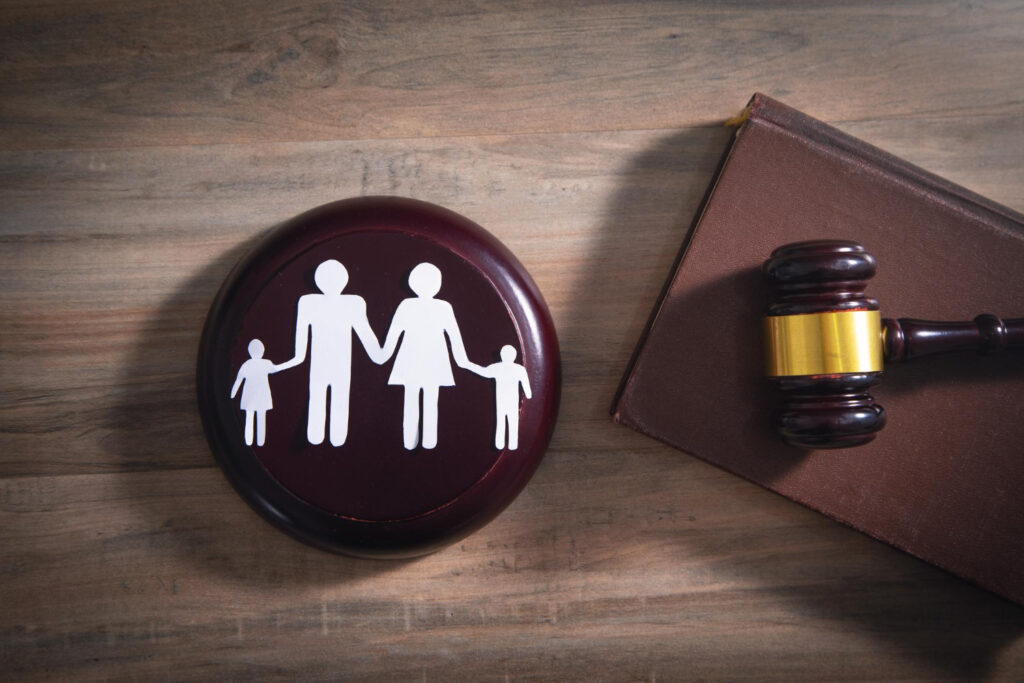Family Law: Definition, Key Concepts and Practice
Family law is more than just divorce and child custody; it’s about the fabric that holds families together in difficult times. At LawOfficeOfBrianKelly, we understand the emotional and legal complexities involved in family disputes. Our experienced divorce lawyers are here to guide you through every step, ensuring your rights and interests are protected. Dive into our article to learn how family law impacts various aspects of your life and how we can help you navigate through it with confidence.
As stated by the American Bar Association, family law covers legal issues involving family relationships, like marriage, divorce, child custody, and adoption. It includes laws and court procedures related to family matters. This branch of law helps resolve disputes and protect family rights.
What is Family Law?
Family Law encompasses legal issues involving family dynamics, including marriage, divorce, and child custody.
By and large, Family Law deals with many different issues like marriage, divorce, child custody, adoption, and domestic violence. It aims to protect the rights and well-being of family members and make sure disputes are settled fairly. It also covers spousal support, child support, and dividing assets during a divorce.
As a rule, Family Law also handles paternity, guardianship, and establishing legal parent-child relationships. The main goal of Family Law is to look out for the best interests of families and offer legal help to people with family-related problems. In short, Family Law is important for keeping families stable and well-structured in society.
Types of Family Law Cases
Family law cases encompass diverse legal matters, including divorce, child custody, adoption, and domestic violence.
In a basic sense, these cases often involve things like divorce, child custody and visitation, child support, adoption, paternity, domestic violence, and guardianship. Each type of case needs legal help to sort out problems and make sure everyone’s best interests are looked after.
In divorce cases, the legal process ends the marriage and deals with things like dividing property and spousal support. Child custody and visitation cases decide who will take care of the children and where they will live after the parents separate. Child support cases figure out how much money the non-custodial parent should pay to help care for the child. Predominantly adoption cases are about establishing a legal parent-child relationship between an adoptive parent and a child. Paternity cases identify the legal father of a child and address issues like custody, visitation, and child support.
Domestic violence cases need legal action to protect victims and ensure perpetrators are held responsible. Guardianship cases appoint someone to care for a minor or an adult who can’t take care of themselves.
Each of these family law cases requires careful attention to the specific needs and circumstances of the people involved to reach a fair outcome for everyone.
Role of a Family Lawyer
A family lawyer navigates the intricacies of family dynamics in legal contexts, providing crucial support in matters like divorce, custody, and adoption.
In general, family lawyers help people deal with legal issues like divorce, child custody, adoption, and domestic violence. They guide clients through the legal system, protect their rights, and aim for fair outcomes. These lawyers advise on money matters, prepare legal documents, and represent clients in court.
In essence, they also try to reduce conflict and help families find friendly solutions. Their job is to support their clients’ needs and make sure their rights are respected within the law. Family lawyers are key in helping people handle complicated legal problems and move on with their lives.
How Family Law Affects You
Family law influences various aspects of your personal life, from marriage and divorce to child custody and inheritance.
In essence, family law deals with legal matters related to family life. This includes things like getting married, getting divorced, and taking care of children. It also covers adoption, domestic violence, and dividing property between spouses.
For marriage, family law sets the rules for how to get married and what to do if you want a divorce. It also explains how to split up belongings between partners. In cases of domestic violence, family law gives protection to victims and lays out the penalties for those who are abusive.
In a basic sense, when it comes to children, family law decides who gets to make important decisions about the child’s life and who must pay for the child’s needs. It also covers the legal process for adopting a child.
In general, family law affects many parts of people’s lives by setting the rules for marriage, divorce, and taking care of children. Knowing about family law helps people handle these often complicated and emotional situations better.

Common Family Law Terms
As highlighted before family law encompasses terms like alimony, custody, and prenuptial agreements, addressing complex issues within relationships and families.
Let me explain, here are some common terms used in family law:
- Divorce: This is when a marriage is legally ended.
- Child Custody: This refers to the rights and responsibilities parents have regarding their children.
- Child Support: This is money that one parent pays to the other to help take care of their children.
- Alimony/Spousal Support: This is financial support paid by one spouse to the other after they get divorced.
- Adoption: This is the legal process of becoming the parent of a child who isn’t biologically yours.
To simplify- Prenuptial Agreements: These are contracts that couples sign before getting married to decide how to divide their assets if they get divorced.
- Domestic Violence: This means abuse or violence that happens within a family or household.
- Paternity Testing: This is a test to find out who the biological father of a child is.
- Mediation: This is when a neutral third party helps people agree on something without going to court.
- Restraining Orders: These are court orders that protect people from harm or harassment.
Understanding these terms can help when dealing with legal issues in the family.
The Final Thoughts
Family law encompasses a wide range of legal matters relating to families and domestic relationships.
What LawOfficeOfBrianKelly is being fans of is, whether it involves divorce, child custody, adoption, or domestic violence, family law plays a very important role in safeguarding the well-being and rights of individuals within the family unit.
Ultimately, family law serves as a vital tool in resolving disputes and ensuring justice in familial matters.







